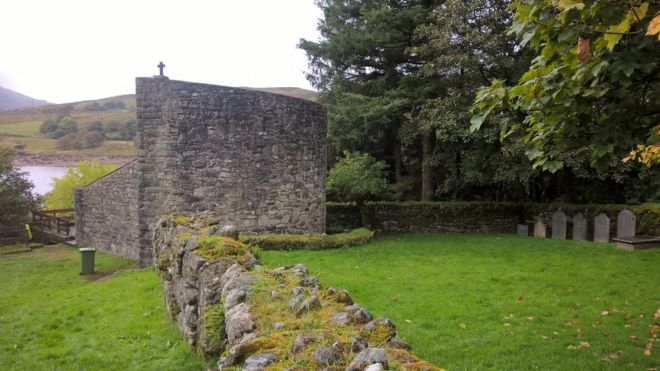Conservation work to begin on memorial chapel marking destruction of Welsh speaking community of Capel Celyn to supply water to England

In 1965 a memorial chapel was built as a memorial to the drowned Welsh speaking village of Capel Celyn. Capel is Welsh for chapel, while celyn is Welsh for holly. The memorial chapel is now about to have conservation work undertaken. Capel Celyn was located to the north west of Bala in Gwynedd, in the Afon Tryweryn valley in the north of Wales. In what has been described as one of the darkest days in modern Welsh history, the village and other parts of the valley were flooded in 1965 to create a reservoir, Llyn Celyn, in order to supply the English city of Liverpool and the Wirral peninsula in northwest England with water.
Houses and farms were submerged and people dispossessed when this act of vandalism was committed by the United Kingdom government on Capel Celyn. When the UK Act of Parliament to destroy the community was passed in 1962 thirty-five out of thirty-six Welsh Members of Parliament (MPs) opposed the bill (the other did not vote). However, their views and those of the Welsh speaking community of Capel Celyn were ridden roughshod over. The members of the community waged an eight-year effort, ultimately unsuccessful, to prevent the destruction of their homes.
Bitterness and resentment continues to this day. The words 'Cofiwch Dryweryn' - remember Treweryn – are painted on the wall in Llanrhystud, outside Aberystwyth in memory of this dastardly deed. Many years later, in 2005, Liverpool City Council apologised in 2005 for the "hurt" and "insensitivity" of the drowning of Capel Celyn. However, it has to be remembered that this type of thing could happen again. Until Wales becomes independent and has control over its own natural resources the UK government still has the ability to ignore the wishes of the Welsh people in order to provide for the needs of England.






